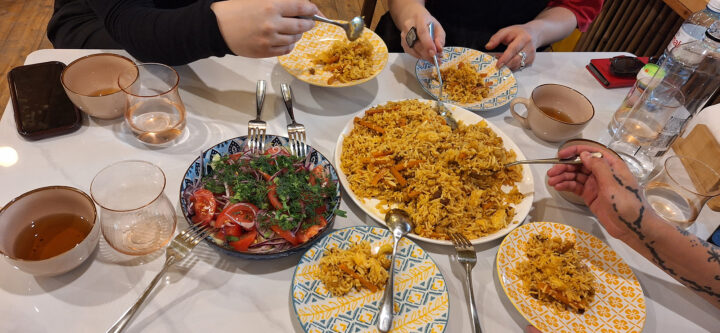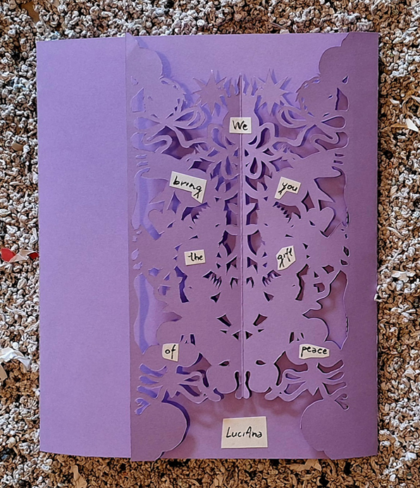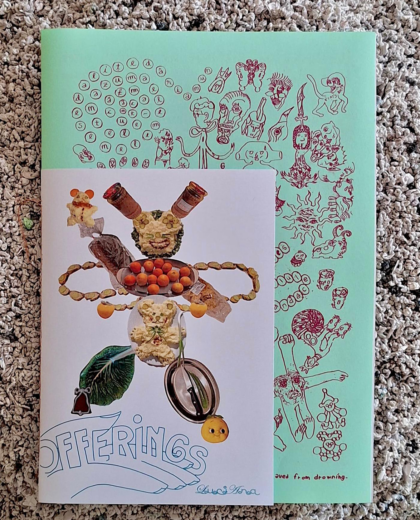From the 21st to the 27th of April 2025, I took part in the research residency (Dis)solutions: Decolonial Encounters in Almaty, Kazakhstan, together with colleagues Amassia Niziblian from Armenia and Sopo Kashakashvili from Georgia/Germany. The program is curated by Lia Dostlieva, Kamila Smagulova, and Solvita Krese and financed by Goethe-Institut Ukraine. The edition in Almaty was the last of four residencies organized in the past two years in a program focusing on Central Asia and Eastern Europe and their particular post-colonial dimension.
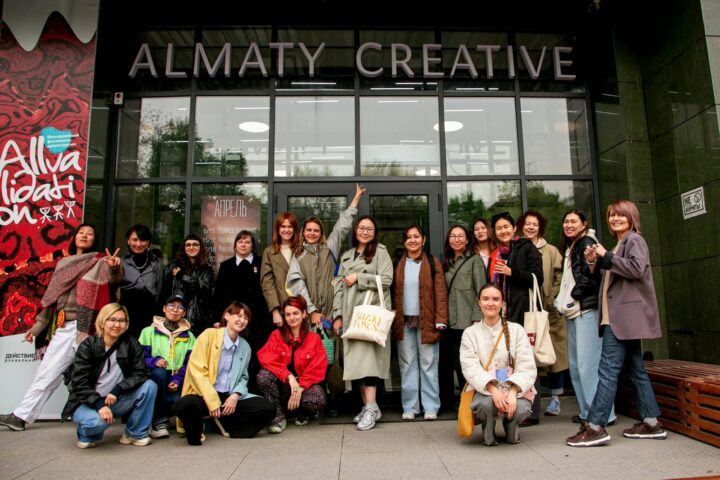
The week started with a series of presentations by colleagues in Almaty (Dariya ‘Kokonja’ Nurtaza, Zhanel Shakhan, Medina Bazargali, Aruzhan Zhumabek, Meruert Kunanova) and the artists in residence at the Almaty Creative Hub. I was very impressed with everyone’s practice, which dealt with issues of memory and collective/familial trauma, feminist perspective on decolonising traditions, motherhood as a migrant experience, nomadic cultural identity, displacement, gentle political activism, sacred spaces, all these and more through very diverse techniques such as felting, painting, drawing, shadow projecting, field recording, embroidery, glass work, performance and so on, a diversity of mediums to fit a multitude of views on life and politics.
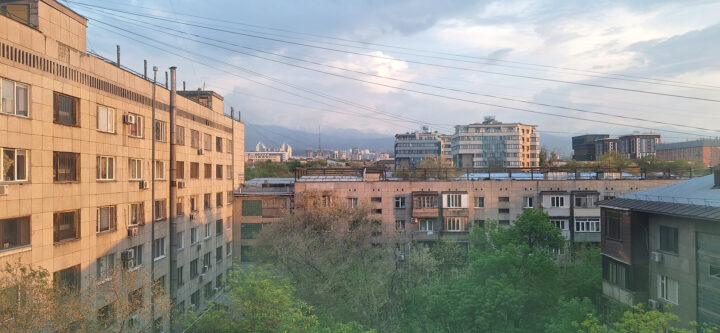
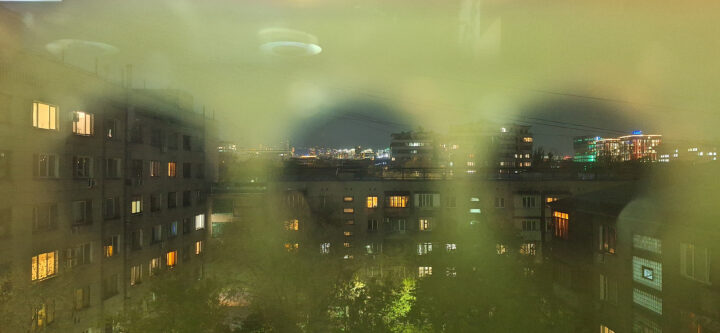
The discussion was picked up in the informal event at the Goethe Institut Kazakhstan, where issues of identity and decolonial thought were discussed by the participants and the public. My colleague Amassia discussed her identity as part of her family history in Armenia and the Armenian diaspora. Sopo detailed the questions she faced as part of her experience as a migrant from Georgia to Germany. Building on my colleagues’ answers to a question from the public that cast doubt on the relevance of identity politics in the grand scheme of things, my input started from the observation that identity can also be projected onto others, regardless and sometimes in spite of the identity assumed, as Sopo mentioned. As such it can be an act of violence in itself, or can bring upon violence (by identifying someone as part of a vulnerable community in a time of uncertainty, for example). By contrast, assuming an identity, in pair with a decolonial view of said identity, can be a liberating act of awareness and agency. Ultimately, we all strive to be in awe of others and aware of our impact on the communities we come from.
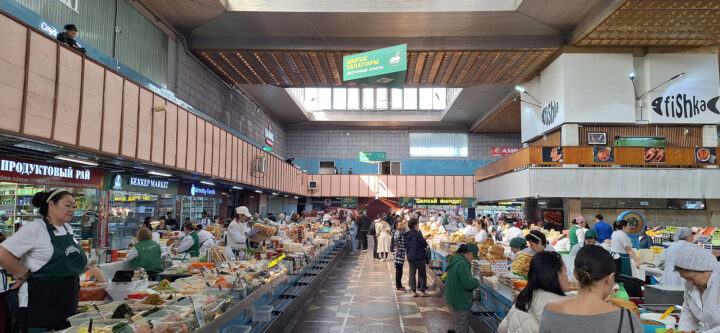
Our residency included visits to the Green Bazaar (home to everything that can be sold from spices to herbal remedies, and lots and lots of food) A. Kasteyev State Museum of Arts (home to modern and amazing traditional arts and crafts), guided tour at Egin Art Space (with the exhibition Ancient Futures, where an thoughtful conversation on ethics was initiated by Acell Shaldibayeva, our host in Almaty), guided tour in the beautiful collection of Ykhlas Museum of Musical Instruments, the artist-run space Dump Gallery (a very profound sound installation based on thorough research and field recordings at Semipalatinsk nuclear test site by Kamila Narysheva and Vicky Clarke) as well as two contemporary art spaces still under construction, Almaty Museum of Arts (tour by curator Inga Lace) and Tselinny Center of Contemporary Culture (tour by curator Jamilya Nurkaliyeva).
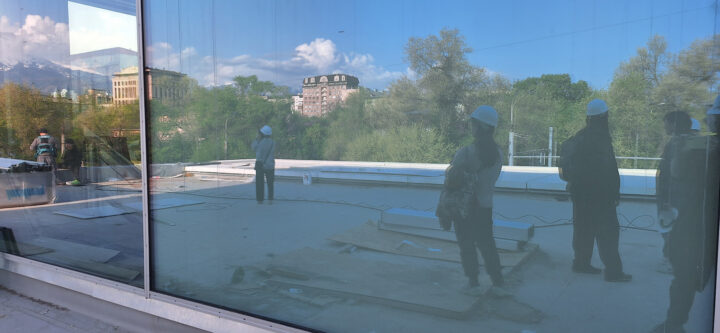
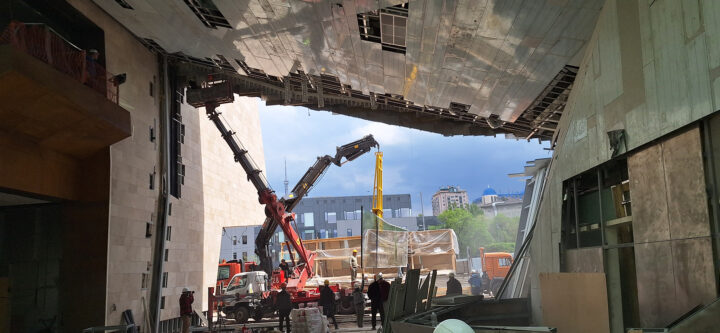
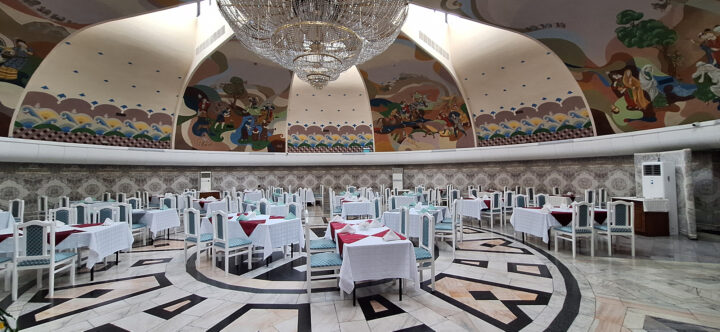
I found it especially illuminating the city tour of Antonina Van Lier, where we visited the Golden square, the Almaty Hotel, the metro, and, the highlight of the tour, a visit inside the soviet era international hotel Otrar.
We visited the private studios of Zhanel Shakhan and Gulnur Mukazhanova, two amazing artists I wish to thank for their generous explanations and observations.
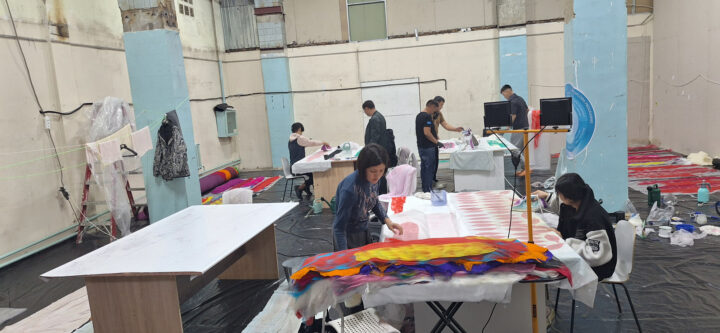
We recorded a podcast episode, a very meditative experience brought upon by the thoughtful questions of Aisulu Toyshibek about the role of art in these times.
Towards the end of the residency, together with our hosts, we embarked on two out of city trips, one to Medeo and one to Charyn Canyon. While Medeo was beautiful and such a treat after having the sight of mountains teasing us everyday, the trip to Charyn Canyon was my favorite – a grand, yet delicate rock formation, looking lifeless from a far, but teaming with human and non-human animals, insects and low (and often flowering) vegetation, ending in the mighty Charyn river! The perfect sport for a centering meditation where we shared a moment of quiet reflection.


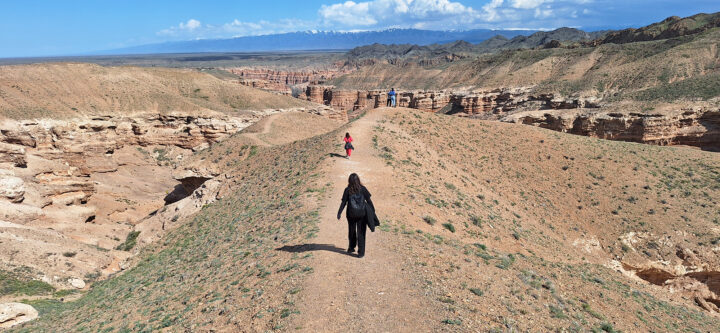
(Dis)solutions: Decolonial Encounters was a well rounded residency, which exercised both our minds and our bodies, where I saw different perspectives on the former USSR and recentering personal and collective identities. I felt welcomed into the local art scene, with generosity and joy. Thank you, to everyone mentioned above, and to the teams of Goethe Institut Kazakhstan and Ukraine.
